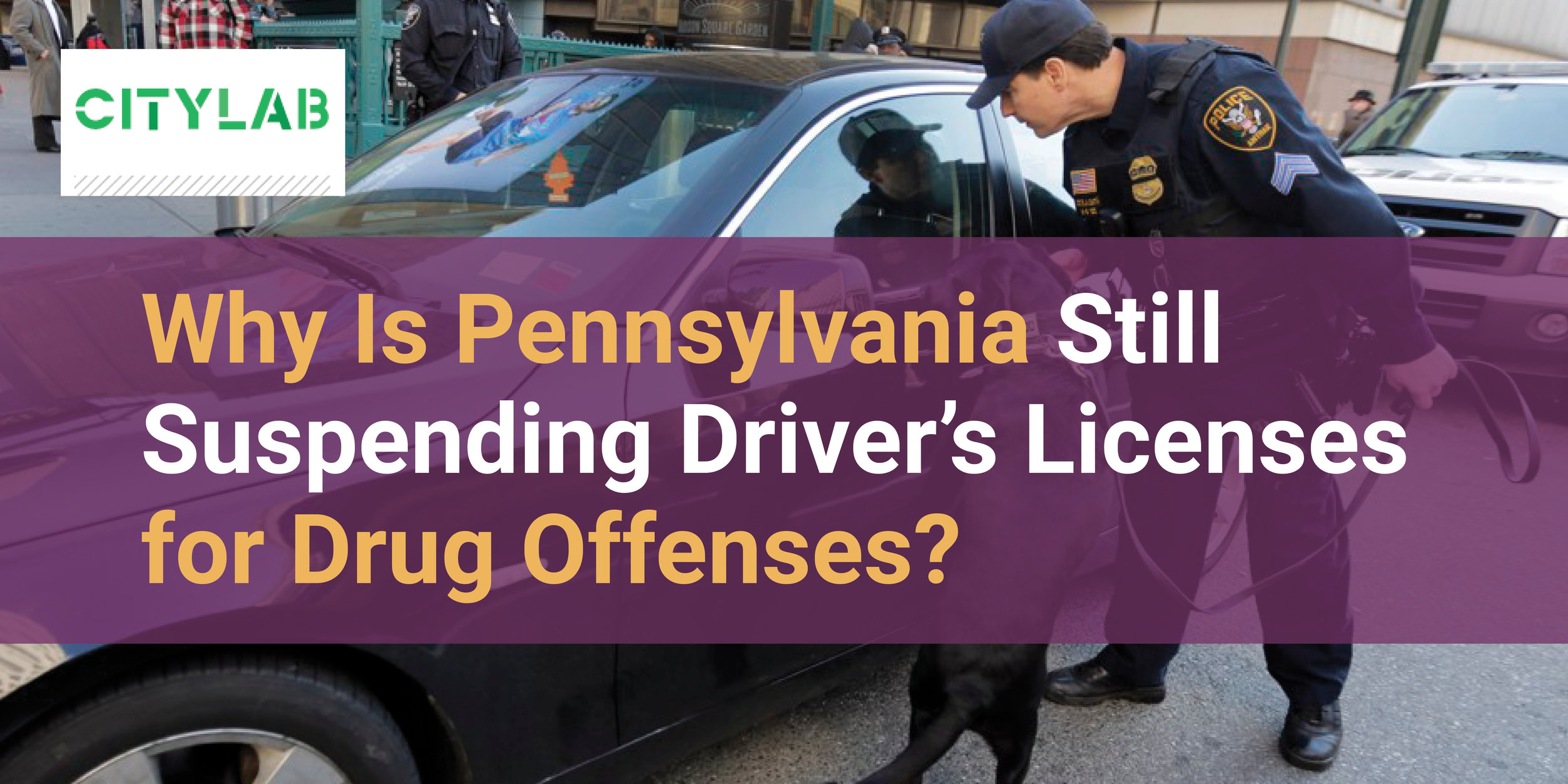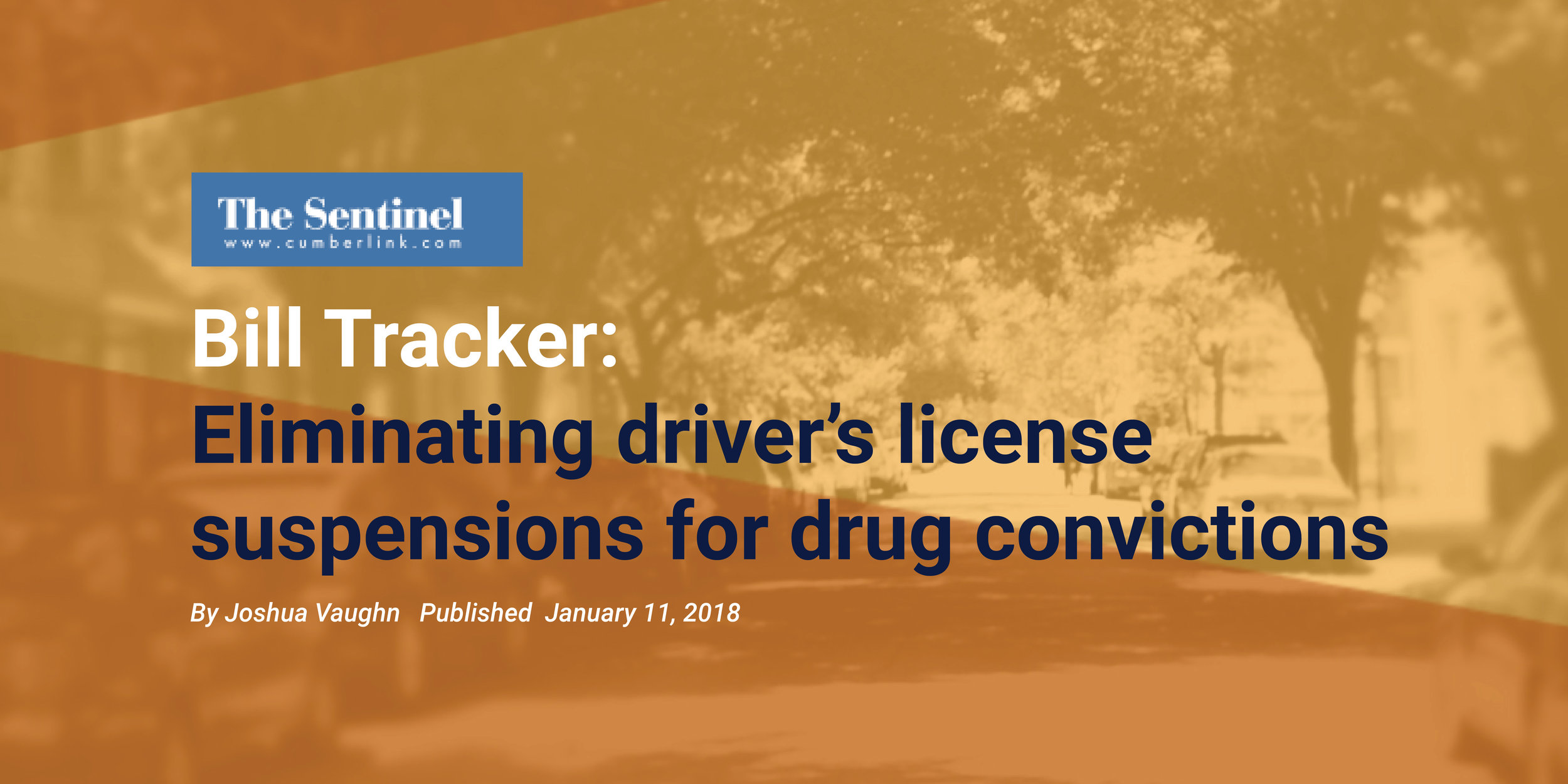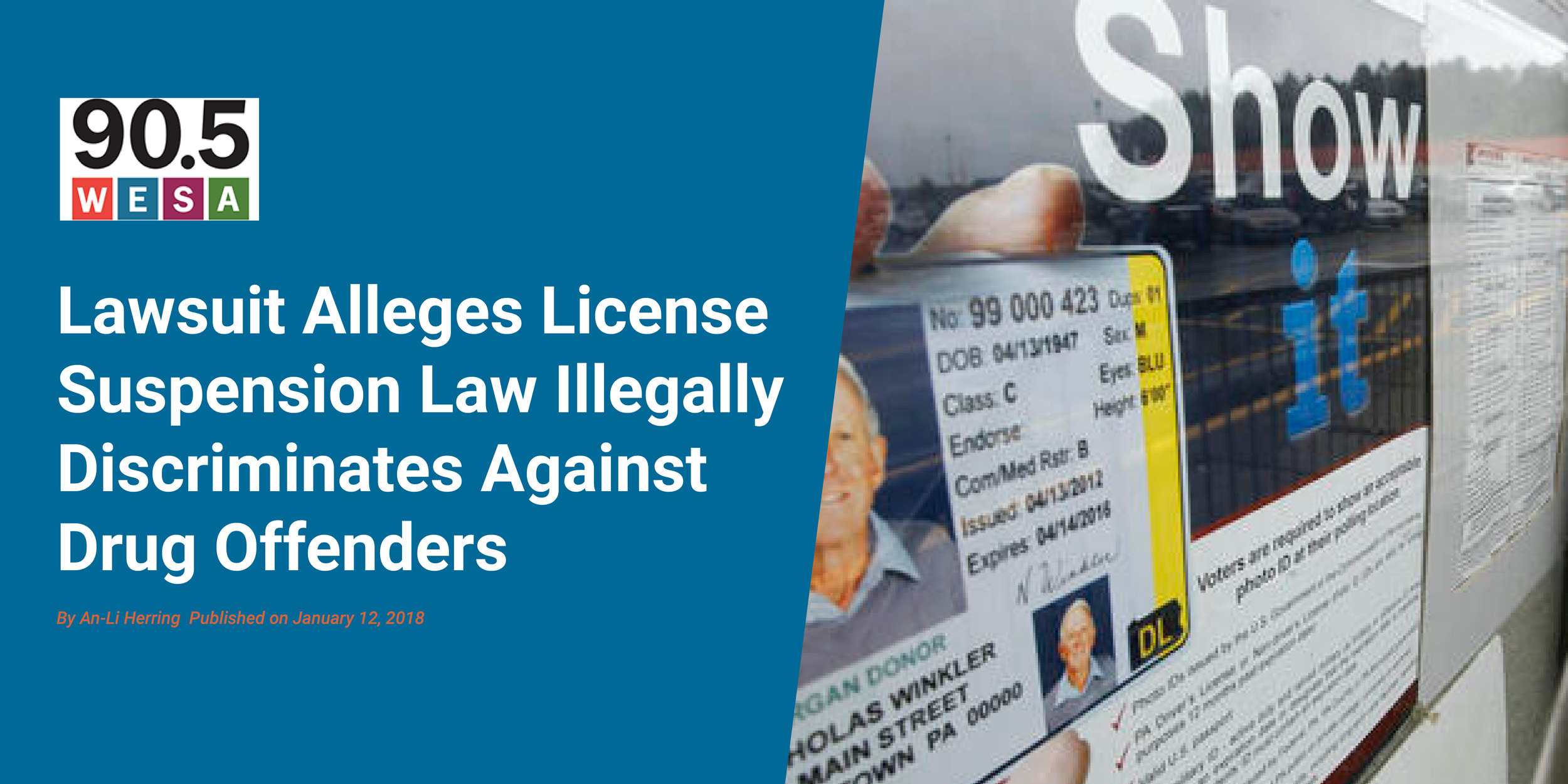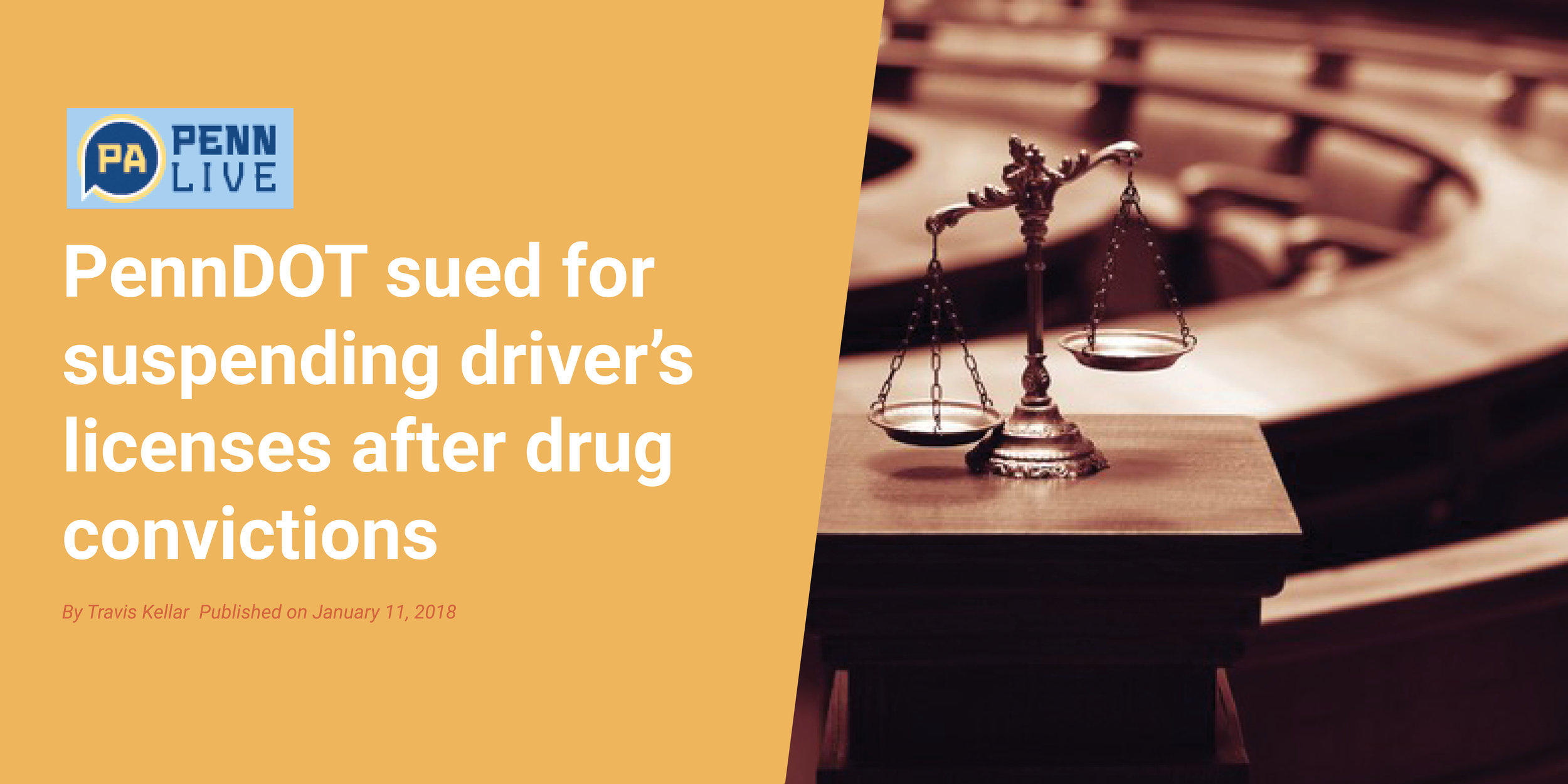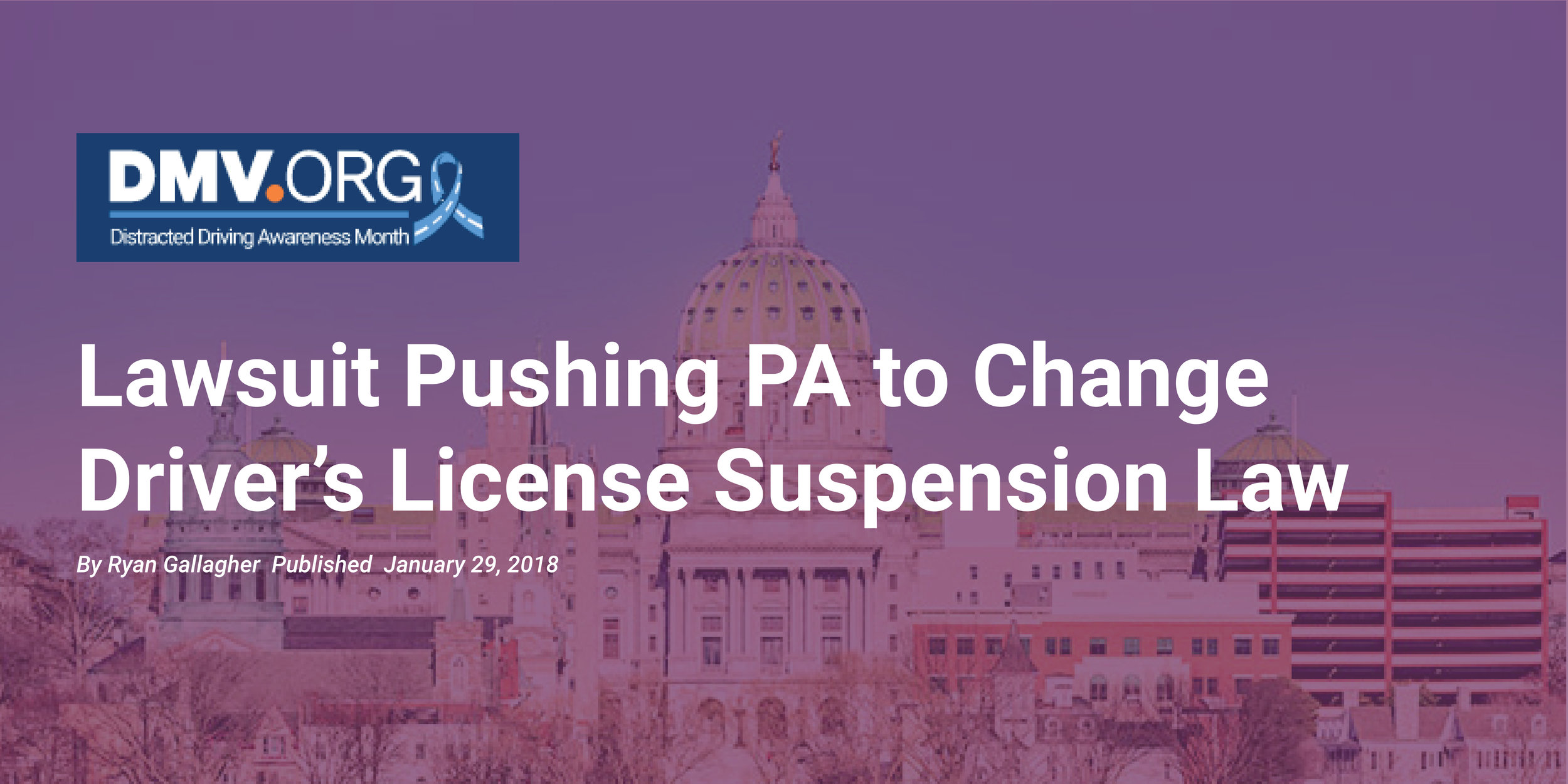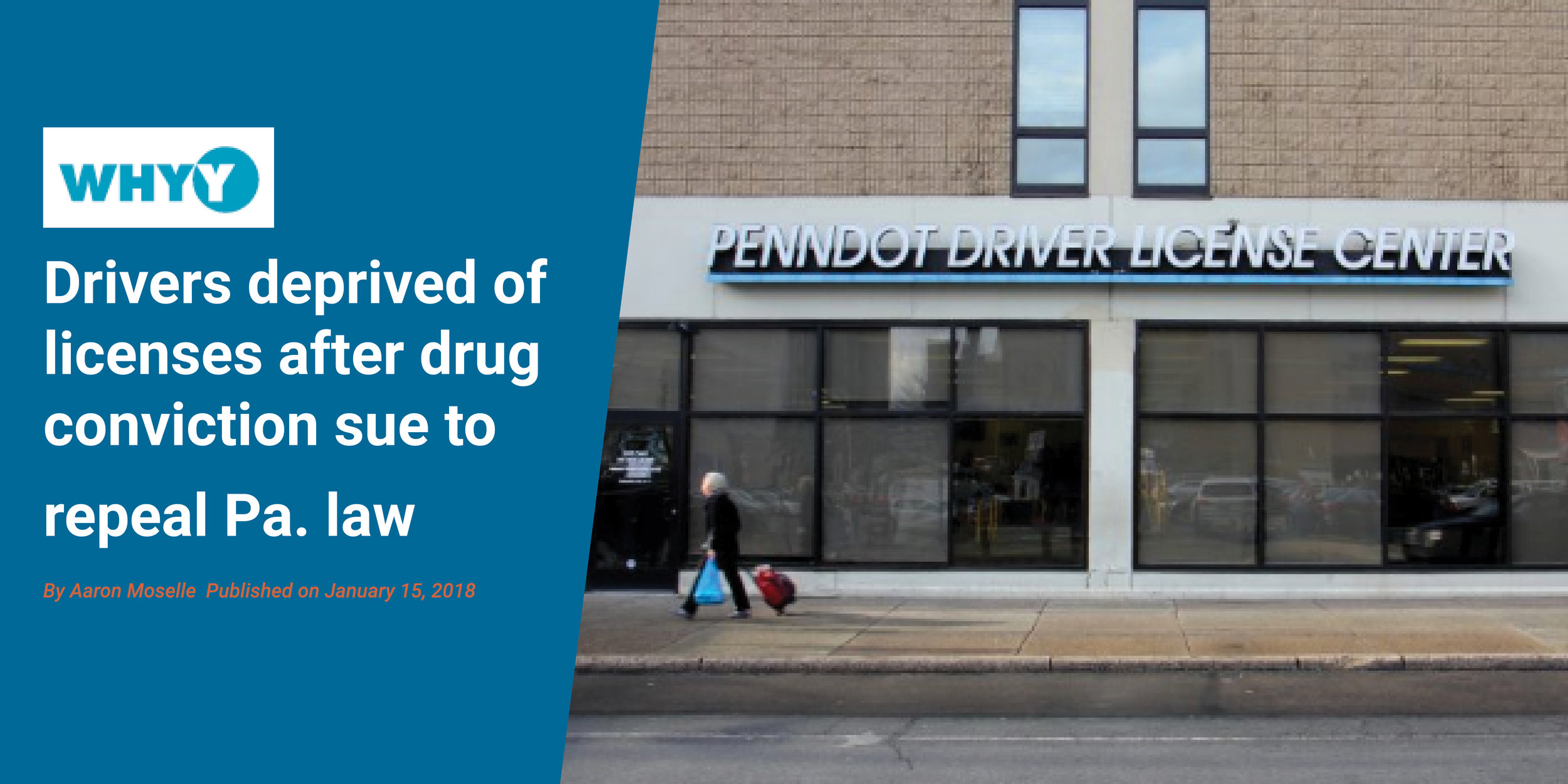Harold v. Richards
Pennsylvania targeted people with drug-related convictions in a particularly severe way — unlike for all other criminal offenses, the state automatically suspended the driver’s license of any person whose conviction involved drugs. These suspensions made social reentry nearly impossible; they deprived individuals of the ability to find and keep steady employment, to access medical care and addiction treatment services, and to care for their families during the critical period when they are trying to overcome the myriad consequences of a drug conviction and rebuild their lives.
Unlike the majority of states, Pennsylvania enforced a relic of the failed war on drugs — a discriminatory policy that suspended licenses for drug offenses (including minor and first-time offenses) even where the offense did not involve traffic safety at all. Between 2011 and 2016 alone, Pennsylvania suspended the licenses of nearly 149,000 individuals under this punitive scheme. Even though these individuals already served criminal sentences for their convictions, they also lost their ability to drive for months, years and sometimes decades.
Pennsylvania’s license suspension scheme disproportionately affected those who are over-policed and most likely to be convicted of drug offenses: people of color and people living in impoverished neighborhoods. Thus Pennsylvania trapped thousands of former drug offenders in an endless cycle of hardship and poverty.
Plaintiffs Russell Harold and Sean Williams are fathers who were convicted of minor drug offenses. As a result of a years-long license suspension, Russell lost his job and he had difficulty making it to the doctor to treat his disability (and missed many appointments entirely). Russell’s license suspension also made it impossible for him to spend time with and support his children and grandchildren like he did before. Plaintiff Sean Williams is a young man who was stopped and frisked by police virtually every time he left his home, and as a result has been convicted of minor marijuana possessions. Without a license, Sean lost out on numerous employment opportunities and could no longer care for his sick grandmother. Sean’s son was born prematurely and spent the first ten months of his life in intensive care at the hospital. Sean later had difficulty getting his son to necessary doctor’s appointments due to his inability to legally drive.
Equal Justice Under Law challenged Pennsylvania’s license suspension scheme as a violation of the Equal Protection Clause, procedural due process, and the fundamental right to intrastate travel as recognized by the Third Circuit.
In October 2018, Pennsylvania Governor Tom Wolf signed Act 95 into law to prevent these license suspensions from happening moving forward. However, the language of the legislation failed to make these changes retroactive, and we continue to work with advocates in Pennsylvania to ensure retroactivity for the tens of thousands of Pennsylvanians who still have their licenses suspended due to drug-related convictions.
case details
Motion for Preliminary Injunction
Status: Statute repealed
Date Filed: 01/10/18
Plaintiffs: Russell Harold and Sean Williams, on behalf of a class of approximately 149,000
Defendants:
Leslie Richards, Secretary of Department of Transportation
Tom Wolf, Governor of Pennsylvania
Leo Bagley, Executive Deputy Secretary of the Department of Transportation
Kurt Myers, Deputy Secretary of Driver and Vehicle Services
Jurisdiction: Eastern District of Pennsylvania
IMPACT
The law was repealed in October 2018, preventing Pennsylvania from suspending licenses for drug-related convictions moving forward. However, the legislation failed to address the tens of thousands of individuals who already had a suspended license. We continue to work with advocates in Pennsylvania to achieve retroactivity of this policy.

